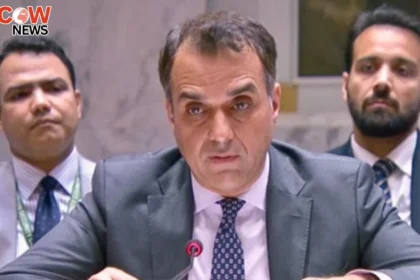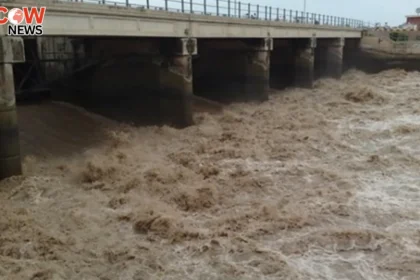The World Health Organization (WHO) has recently declared a critical shortage of oral cholera vaccines, with the global stockpile reportedly empty as of October 14, 2024. This alarming situation has raised significant concerns among health officials and governments worldwide, given that cholera is a preventable disease that can lead to severe health crises if left unchecked. This article delves into the implications of this shortage, the factors contributing to it, and the urgent measures required to address the ongoing cholera outbreaks across various regions.
The current shortage of oral cholera vaccines is not merely a logistical issue; it poses a significant threat to global health, particularly in regions that are already experiencing cholera outbreaks. As cholera thrives in conditions of poor sanitation and inadequate access to clean water, the lack of vaccines heightens the risk for vulnerable populations. Countries that rely on these vaccines to protect their citizens now face the daunting challenge of controlling outbreaks with limited resources.
Several factors contribute to the vaccine shortage. One major issue is the supply chain disruptions caused by global crises, such as pandemics and geopolitical tensions, which have affected manufacturing and distribution. Additionally, the production of oral cholera vaccines is limited, and manufacturers have faced difficulties ramping up production to meet increasing demand. This situation is compounded by a lack of investment in vaccine research and development, leading to a stagnant supply of new and effective cholera vaccines.
In light of this crisis, urgent measures must be implemented to address the ongoing outbreaks and mitigate the effects of the vaccine shortage. Governments and health organizations need to collaborate on emergency response plans that prioritize the vaccination of at-risk populations. By focusing resources on areas with the highest incidence of cholera, stakeholders can better protect vulnerable communities and prevent further spread of the disease.
Moreover, investing in research and development for new cholera vaccines is crucial. This includes exploring alternative treatment options and enhancing existing vaccines to ensure they remain effective against evolving strains of the bacterium. Innovations in vaccine technology could lead to more efficient production processes, ultimately increasing the availability of vaccines in the long term.
Lastly, community engagement and education play pivotal roles in cholera prevention efforts. By involving local leaders and organizations, health officials can foster trust within communities and encourage participation in vaccination programs. Public awareness campaigns that inform populations about cholera prevention strategies—such as maintaining proper sanitation and hygiene—are essential in combating the disease, particularly during this critical period of vaccine shortage.
Understanding Cholera
Cholera, caused by the bacterium Vibrio cholerae, is a severe diarrheal illness that can lead to rapid dehydration and death if not treated promptly. The bacteria primarily spread through contaminated water and food, especially in regions with poor sanitation and limited access to clean drinking water.
Symptoms of Cholera
Common symptoms include:
- Watery Diarrhea: Often described as “rice-water stools.”
- Vomiting: Can lead to additional fluid loss.
- Leg Cramps: Resulting from electrolyte imbalances.
If untreated, cholera can lead to severe dehydration, shock, and death.
Vulnerable Populations
Certain populations are more vulnerable to cholera outbreaks, including:
- Areas with Inadequate Sanitation: Regions where waste disposal and clean water access are lacking.
- Displaced Populations: Refugees and those in temporary shelters face increased risks due to crowded conditions and limited access to healthcare.
- During Natural Disasters: Floods and hurricanes can contaminate water supplies, leading to outbreaks.
Preventive Measures
Preventing cholera involves improving sanitation and hygiene practices, including:
- Access to Clean Water: Ensuring communities have reliable sources of safe drinking water.
- Sanitation Facilities: Building adequate toilets and waste disposal systems.
- Public Health Education: Teaching communities about the importance of handwashing and food safety.
Global Impact
Cholera remains a global health challenge, particularly in developing countries. Frequent outbreaks highlight the need for ongoing public health efforts to improve water quality and sanitation, along with vaccination strategies to protect at-risk populations.
By addressing these issues holistically, the impact of cholera can be significantly reduced, protecting vulnerable communities from its devastating effects.
Current State of Cholera Vaccination
Despite the existence of effective vaccines, the global cholera vaccine stockpile has been depleted. This situation is particularly concerning as the WHO has reported significant cholera outbreaks in multiple countries, necessitating an urgent response.
- Recent Statistics: The WHO reported that in 2024, there were approximately 439,724 cholera cases and 3,432 deaths recorded by the end of September. While cases have decreased by 16% compared to the previous year, the increase in fatalities—up 126%—is alarming.
- Countries Affected: Nations like Bangladesh, Sudan, Niger, Ethiopia, and Myanmar have seen a spike in cholera cases, prompting urgent requests for vaccines to curb the spread of the disease.
Contributing Factors to the Vaccine Shortage
Several factors have contributed to the current cholera vaccine shortage, making it a complex issue that requires multifaceted solutions.
- Increased Demand: The recent spike in cholera outbreaks has led to a surge in vaccine requests. Countries have reported an overwhelming need for vaccines, exceeding the available supply.
- Production Challenges: Vaccine production has been hindered by various challenges, including logistical issues and the need for enhanced manufacturing capacity. Health authorities have struggled to meet the demands due to limited resources and outdated facilities.
- Global Supply Chain Issues: The COVID-19 pandemic disrupted global supply chains, impacting the availability of essential medical supplies, including vaccines. This disruption has had a cascading effect on cholera vaccine production.
- Inadequate Funding: Limited financial resources allocated for cholera vaccination programs have exacerbated the situation. Investments in vaccine production and distribution infrastructure are crucial for a sustainable solution.
Implications of the Vaccine Shortage
- Increased Outbreak Risk: The absence of sufficient vaccines raises the likelihood of cholera outbreaks, especially in vulnerable communities where sanitation is poor.
- Strain on Healthcare Systems: Rising case numbers can overwhelm healthcare facilities, diverting essential resources and impacting the delivery of other critical services.
- Long-Term Health Consequences: Cholera outbreaks can lead to economic losses, reduced productivity, and long-lasting health complications in affected populations.
- Diminished Public Trust: Vaccine shortages may erode public confidence in health authorities and vaccination programs, complicating future immunization efforts.
- Pressure on International Aid: Increased demand for emergency assistance from global health organizations could strain resources and affect response times.
- Increased Healthcare Costs: The financial burden on healthcare systems will rise due to treatment costs, further complicating public health efforts.
- Wider Societal Impact: Cholera outbreaks can disrupt education, economic activities, and social stability, leading to broader societal issues.
The Need for Urgent Action
In light of the current cholera vaccine shortage, immediate and coordinated actions are essential to address this public health crisis.
- Boosting Vaccine Production: Governments and health organizations must collaborate with vaccine manufacturers to increase production capacity. This effort should prioritize the development of new manufacturing techniques and technologies to streamline production processes.
- Strengthening Infrastructure: Improving water, sanitation, and hygiene (WASH) infrastructure is vital in cholera-prone areas. Investments in clean water supply, sewage systems, and sanitation facilities can significantly reduce the risk of cholera transmission.
- Raising Public Awareness: Public health campaigns should aim to educate communities about cholera prevention and the importance of vaccination. Raising awareness can empower individuals to take preventive measures and seek vaccination.
- Enhancing Surveillance: Strengthening surveillance systems can help detect cholera outbreaks early and respond swiftly. Investing in technology and data collection can improve outbreak prediction and response strategies.
- Global Collaboration: The global health community must work together to ensure equitable access to cholera vaccines. International collaboration and funding can help distribute vaccines to high-risk areas and ensure that vulnerable populations are protected.
Future Strategies for Cholera Control
- Emergency Response Plans: Develop comprehensive emergency response plans focusing on vaccination strategies for at-risk populations, addressing potential outbreaks proactively.
- Research and Development: Invest in the research of new cholera vaccines and alternative treatments to enhance prevention measures and make solutions more accessible.
- Community Engagement: Foster trust and encourage local participation by involving community leaders and organizations in health initiatives.
- Policy Advocacy: Promote policies prioritizing cholera prevention funding and public health infrastructure investments to avert future crises.
- Strengthening Surveillance Systems: Enhance surveillance mechanisms to monitor cholera outbreaks and vaccination coverage, ensuring timely interventions.
- Integrated Health Programs: Implement integrated health programs that combine cholera prevention with broader public health initiatives, addressing root causes like sanitation and water quality.
- Capacity Building: Train healthcare workers in cholera prevention and treatment, ensuring communities are equipped to respond effectively during outbreaks.
The depletion of the global cholera vaccine stockpile represents a significant challenge in controlling cholera outbreaks worldwide. Urgent action is required to boost vaccine production, strengthen healthcare infrastructure, and enhance community engagement in prevention efforts. By addressing these critical issues collaboratively, we can safeguard public health and mitigate the impact of cholera in vulnerable populations.
#Cholera #Vaccines #WHO #GlobalHealth #PublicHealth #CholeraOutbreaks #Healthcare #Vaccination #Epidemiology #InfectiousDiseases







